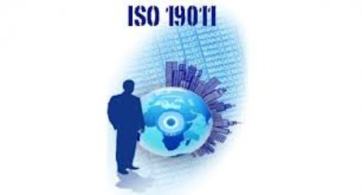Quality Assurance Auditing for FDA-regulated industries

An effective audit constitutes the heart of an effective Quality System. The FDA and other regulatory agencies have emphasized this principle time and again. The purpose of an audit program is to ensure proper and thorough compliance with the guidelines set out by the regulatory agencies. A Quality Assurance audit should also ensure that the activities the company that is being audited is carrying out are within the legal guidelines and frameworks laid out by the respective regulatory authorities.
Two types of audits

An organization that is in an FDA-regulated industry is required to carry out internal and external audits. The purpose of this dual type of audit is that one complements the other and the two together reinforce the audits. As the two terms indicate, an internal audit may be thought of as being a tool for self-examination. It is an audit that the organization’s own employees carry out to scrutinize the usefulness of the systems. An external audit, on the other hand, is one that is performed by an independent person who has the qualification and purpose for this kind of work. The purpose of both these types of audits is the same.
Audits based on process

The core principle on which audits for the FDA-regulated industries are carried out as part of a Quality System is that since testing alone is not sufficient to ensure quality; quality should be inbuilt into the product. This approach, called the process based to auditing; has to, naturally, be based on an in-depth understanding of the entire set of processes that go into a Quality System before the commencement of the audit. A complete understanding of the processes relating to the business, control and production on the part of the auditors should be the basis to the process-based audit. Auditors then go about defining the criteria for the audit and the scope of the purpose they expect it to serve.
So, what to audit?

Since Quality Assurance auditing is generic to any FDA-regulated industry; a definition of what has to be audited is quite expansive. Based on the kind of the business, these are the important areas in which audit is carried out:
- Product
- Process
- Quality System
- Regulatory
- Supplier
- System
- Management
Four self-explanatory phases go into an auditing process:
- The preparation stage
- The performance stage
- The Reporting stage
- The follow-up and closure stage
The ISO 19011

The ISO introduced the ISO 19011 management systems audit. The ISO makes it mandatory for companies to also audit the management systems along with Quality Systems. This is done to ensure completeness of the audit.
Passed in 2011, the ISO 19011 is the guiding principle for auditing a company’s management systems and the ISO standard for auditing a company’s management systems.
Full understanding of all elements of audits
A detailed explanation of the ISO 19011 and all other aspects of an ISO audit will be given at a two-day seminar that is being organized by GlobalCompliancePanel, a leading provider of professional trainings for the areas of regulatory compliance.
At this seminar, David Dills, Global Regulatory Affairs & Compliance Consultant who provides regulatory affairs and compliance consultative services for early-stage and established Class I/II/III device, IVD, biopharmaceutical, cosmetics and nutraceutical manufacturers on the global landscape, and has an accomplished record with more than 27 years of experience in the areas of Regulatory Affairs, Compliance and Quality Systems; will be the Director.
Please log on to Quality Assurance Auditing for FDA-regulated industries to enroll for this seminar. This webinar has been pre-approved by RAPS as eligible for up to 12 credits towards a participant’s RAC recertification upon full completion.
Benefits of participation at this seminar
Participants who attend this seminar will benefit in a myriad of ways. David will offer the following at this seminar:
- Clear Understanding of Auditing Fundamentals
- Understand Audit Preparation and Planning
- Learn best techniques for Audit Performance
- Learn best practices for Audit Reporting
- How to address Audit Follow-up and Closure efficiently and effectively
- Understand the requirements and expectations for being an effective auditor
- How to develop into an even better auditor
- How to structure, plan and manage your audits
- How to develop your technical and non-technical skills
- How to perform your best audit ever.
- The fundamentals of process based auditing
- Four Phases of Auditing: Preparation, Performance, Reporting, Follow-up & Closure
- ISO 19011 is the standard that sets forth guidelines for auditing management systems
- Different Types of Audits: Product, Process, System, Quality System, Supplier, Regulatory, Quality System, etc.
- More robust methodologies for preparing and conducting audits
- Auditor competence
- Enhanced audit criteria that consider efficiency and effectiveness
- Applied statistics for auditing when it’s necessary.
Labels: fda regulatory compliance, pharmaceutical regulatory affairs, quality risk management in the fda-regulated industry, regulatory affairs courses, what is fda regulated industry

0 Comments:
Post a Comment
Subscribe to Post Comments [Atom]
<< Home